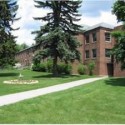Why Obama Isn’t Funding Needle Exchange Programs
Buried on page 795 of President Obama’s budget, released last Thursday, is a paragraph banning the federal funding of needle-exchange programs for drug addicts — an apparent about-face on his campaign promise to overturn that longstanding ban. To the further consternation of AIDS and addiction activists, a statement of support for needle exchange was recently removed from the White House website. Is Obama reversing course?
The Administration says no. Responding by email, Jeff Crowley, director of the White House Office of National AIDS Policy said that the President has no plans to abandon needle exchange, but is simply not moving on the issue yet. “The President is looking forward to working with Congress and the American people to build support for this change,” says Crowley, “and his Administration is committed to moving forward to address the federal ban on syringe exchange programs as a part of a national HIV/AIDS strategy.”
Although conservative critics have long opposed giving clean needles to drug addicts on moral grounds, the consensus among public health experts — including the World Health Organization and the American Medical Association — is that the strategy works to reduce the spread of HIV. “I think the evidence for needle exchange is stronger,” says Don Des Jarlais, director of research for the Baron Edmond de Rothschild Chemical Dependency Institute at Beth Israel Hospital in New York, comparing the scientific support for needle exchange to the overwhelming evidence of human impact on the climate.
Des Jarlais’s studies of HIV infection among drug addicts in New York City have found that new infection rates dropped more than 75% after city and community activists expanded clean-needle programs, beginning in the early 1990s, and later legalized possession of needles. Likewise, needle-exchange programs in other cities, including — after a rocky start — Montreal and Vancouver, had similarly significant impact. So, why has the federal funding ban on these programs, enacted by Congress in 1988, remained intact for two decades?
In a word, politics. The funding ban was introduced by conservative Senator Jesse Helms, and Democrats — wary of being cast as soft on drugs — have been reluctant to reverse it ever since. In 1998, President Clinton said he intended to lift the ban, under a provision in place at the time that allowed the President to do so if the science proved convincing. Although the Clinton Administration admitted the evidence was there, at the last minute, drug czar Barry McCaffrey managed to convince the President that “sending the right message” on drugs was more important — a move that Clinton later said he regretted.
(When candidate Hillary Clinton was asked during the last presidential campaign whether she would lift the ban, she, too, punted, conceding that the choice was political. Pressed at a campaign stop in July 2007, she said she would “as much spine as we possibly can” on AIDS funding and needle exchange.)
Now that it’s up to him, Obama’s spine appears to have weakened too. It’s hard to imagine that Republicans would filibuster the budget over funding for needle exchange, and going back to Congress later to address the issue specifically seems a riskier tack.
“Exactly how they would [lift the ban] through national AIDS strategy, I don’t know,” says Nathan Schaefer, director of public policy at Gay Men’s Health Crisis.
source: Time

